The 80th session of the United Nations General Assembly (UNGA) opened this month under the theme “Better together: 80 years and more for peace, development and human rights.” Brookings experts unpack the issues at stake this year.
Turtle Bay, we have a problem
The theme of this year’s United Nations General Assembly—“Better together”—strikes an oddly redundant note for an organization boasting the word “united” in its name. Presumably the 193 member states joined the U.N. to better pursue their national interests by working together. Eighty years after the signing of the U.N. Charter, member states apparently need a reminder.
At least the chosen theme implies an institutional awareness of a crisis, a crisis predating and exacerbated by the Trump administration’s slashed financial support. Security Council paralysis, resentment over inequalities of privileges and benefits, unfulfilled expectations on addressing climate change and debt, and other issues all contribute to a sense of a bloated organization that has lost its way.
U.N. Secretary-General António Guterres’ UN80 Initiative, a partial reaction to the Trump budget cuts, focuses on efficiencies (with a 20% across-the-board Secretariat staffing reduction); mandate implementation (with over 4,000 mandates accruing to the Secretariat alone); and a still-to-be-unveiled proposal to consolidate functions and entities—essential elements but probably insufficient to reverse the decline in finances and perceptions about U.N. effectiveness.
A key missing element, perhaps to be filled by Guterres’ September 23 UNGA speech, is a compelling narrative about why we should care about the U.N. today. A stirring vision about what is irreplaceable and must be saved. Defending status quo institutions in today’s atmosphere is not simple, and the U.N. inevitably must accept doing “less with less.” Achieving consensus on which functions to save in times of sharply curtailed resources will be more challenging than a 20% staffing cut that intentionally avoided indicating priorities. We need inspiring guidance.
Each year, UNGA has two agendas: one official and, in parallel, an informal agenda of topics everyone discusses in the corridors and during receptions. That unofficial agenda this year will swirl around President Donald Trump, and what it means for the global order if its primary architect and benefactor has lost interest. The unofficial agenda this year might also be dubbed “Better Together.” But with a question mark after it.
Implications of Trump banning the Palestinian leadership from UNGA
Trump has always been bold on Israel/Palestine. During his first term he moved the U.S. Embassy to Israel from Tel Aviv to Jerusalem. He subsumed the U.S. Consulate General in Jerusalem which focused on the West Bank and Gaza into the embassy. And he cut off aid to the Palestinian people.
The implications of Trump banning Palestinian President Mahmoud Abbas from the U.N. General Assembly go beyond the Trump administration sending a warning shot not only to the Palestinians, but also to Australia, Belgium, Canada, and France who are expected to recognize a Palestinian state this month. First, these countries will recognize Palestine anyhow; Trump will likely fail to deter them. That said, 147 countries already recognize Palestine, so the move by the European countries is mostly symbolic.
Second, there is a significant question as to whether the visa refusal is in violation of the 1947 international treaty, signed by the U.S. and ratified by Congress, to headquarter the U.N. in New York—which undermines U.S. international legitimacy. The agreement clearly states, “The federal, state or local authorities of the United States shall not impose any impediments to transit to or from the headquarters district of … persons invited to the headquarters district by the United Nations or by such specialized agency on official business … irrespective of the relations existing between the Governments.”
And third, there is an echo of history—but only a partial one. In 1988, President Ronald Reagan banned then Palestine Liberation Organization Chairman Yasir Arafat from addressing the General Assembly. The U.N. reacted with a special session in Geneva in December where Arafat accepted U.N. resolutions 242, 338, and the Reagan administration finally opened a dialogue with the Palestinians saying they had “recognized Israel’s right to exist.” While Trump’s move may spur a similar Geneva session, there is no indication such a session would spur a policy shift by any party or new diplomacy as it did in 1988. Back then, notwithstanding the U.S. visa denial, the U.S. and the international community were aligned in pressing the Palestinians to accept U.N. resolutions, whereas today, there is no such alignment between the U.S. and other key countries on Israel/Palestine. Meanwhile, on the ground, Palestinians and Israelis are focused not on New York but on Gaza where a new Israeli operation has recently begun and where more than 64,000 people, the vast majority civilians, have been killed—or 3% of the population, the per capita equivalent of 10 million Americans—and dozens of Israeli hostages continue to be held.
Filling the vacuum of US leadership
Over the past 80 years, a central storyline of the U.N. and other multilateral entities as vehicles to solve pressing global challenges is that of strong American leadership and impact. This not only includes the United States’ key role in creating the U.N. but its leadership in advancing global health, human rights, and more.
Of course, the relationship between the U.S. and U.N. has hardly been perfect. At times, the U.S. has clashed with the U.N. and member states. But today, the U.S. leadership role in the multilateral space is even less evident as the U.N. commemorates its 80th anniversary at the U.N. General Assembly this month. The U.S. has withdrawn engagement with and funding for certain U.N. agencies and bodies and weakened its support at the U.N. for Ukraine. It has taken a similar approach in other multilateral venues, including with a tepid embrace of the North Atlantic Treaty Organization (NATO) and a haphazard tariff regime impacting global trade rules. For all those reasons and many more, the U.S. appears to be fundamentally breaking with its long-standing approach to multilateralism and the rules-based international order. Advancement of this multilateral direction had largely characterized our nation’s approach under Republican and Democratic leaders since the end of World War II.
The U.S. shift, while significant and jarring, is not of course fatal for the U.N. and other multilateral efforts to address international challenges. However, it does put a heavier onus on other nations and stakeholders to pick up the slack. This burden includes providing greater leadership and resources to respond to disasters, conflicts, and other challenges. This gap will not be easy to fill, especially as many governments shift resources from official development assistance to other priorities. Nevertheless, as we articulated in the Brookings Democracy Playbook 2025, there are robust strategies and tactics that nations, alliances, and other stakeholders can take individually and collectively to renew, reenergize, and advance efforts to protect freedoms, rights, and democracy globally. Given the rapidly changing global landscape, stakeholders at all levels can adapt to keep alive the vision of impactful multilateralism for another 80 years.
Surprise: Americans increasingly value the UN for defending human rights
The United Nations General Assembly convenes this year in the shadow of what may be the greatest challenge to the international rules-based order since its inception after World War II, partly due to the global stance of the Trump administration. Yet a plurality of Americans, including pluralities of Democrats and Republicans, want the U.S. to rely on international organizations such as the U.N. in advocating human rights globally—something that three-quarters of Americans now support, according to our latest University of Maryland poll.
There are many reasons for the challenge the U.N. faces, including the changing global distribution of economic and military power and the Russian invasion of Ukraine. Israel’s assault on Gaza, following Hamas’ attack, has severely tested the limits to international institutions in confronting what U.N. entities—such as a recent U.N. commission of inquiry— consider to be grave violations of laws and U.N. resolutions, including what major human rights organizations and the largest international association of genocide scholars have found to be war crimes, even genocide.
Certainly, the Trump administration has not only been perceived as undermining international institutions but also withdrawing from U.N. processes and entities, including those focused on human rights, such as the U.N. Human Rights Review, as well as UNESCO, and sanctioning other important international organizations, such as the International Criminal Court (ICC). This has all added up to a sense that global order is under assault. One outcome for the center stage Israeli-Palestinian issue has been that Palestinian leader Mahmoud Abbas is prevented from attending the UNGA meeting, in what some see as a violation of the 1947 U.N. Headquarters Agreement, while Israeli Prime Minister Benjamin Netanyahu, who is wanted by the ICC for alleged war crimes, is welcomed.
Remarkably, amid all this, Americans increasingly want their government to advocate for human rights globally—and to rely mostly on international organizations, instead of acting unilaterally. The latest University of Maryland poll finds that that 79% of Americans want the U.S. to defend human rights globally—up from 65% of Americans who said the same last year.
The urgency of agile global AI governance
UNGA’s historic 80th session is launching the Independent International Scientific Panel on Artificial Intelligence (AI) and the Global Dialogue on AI Governance, opening a window of opportunity to strengthen both global AI governance and the role of multilateral institutions. These new initiatives, outlined in last year’s Pact for the Future, envision consistent evidence-based assessment and policy-relevant recommendations, but their ultimate success will hinge on meaningful leadership from the Global South, particularly Africa.
By 2050, 1 in 4 people will be African, and by 2035, Africa will be home to the world’s largest youth workforce influx, outpacing the rest of the world combined. Already, Africa has the highest rate of entrepreneurship in the world and leads as one of the fastest-growing regions for digital adoption and digital startup ecosystems. Despite this potential, Africa lags behind with less than 1% of the world’s data centers and less than 1% of the world’s AI research and development, while only 0.02% of internet content is in African languages. The new AI initiatives could usefully take on these issues for Africa’s large and growing share of humanity. Doing so would show results from multilateralism in a period where support by some is waning.
Success for the Global Dialogue on AI Governance will require embedding agile governance principles and tools. The dialogue must tackle what experts call the “pacing problem,” where technology moves in weeks but governance takes years. Instead of annual check-ins, these sessions need to become ongoing policy processes with built-in forecasting tools to spot emerging risks early and real-time monitoring dashboards to track how AI deployment affects people in real time. When problems surface, there should be ways to course correct quickly rather than waiting for the next formal meeting.
The dialogue is also uniquely suited to help regulators overcome the “coordination challenge” where adoption slows because of fragmented responses. Strategic panel and working group composition will be key here, bringing together diverse government officials, civil society advocates, and industry experts to overcome work silos and information asymmetry. Together, these stakeholders can use tools like regulatory sandboxes and pilot programs to continuously learn and adapt. With the right commitment to flexible governance systems that emphasize co-creation of regulations and focus on their measurable outcomes, the dialogue can be a unique opportunity to show multilateral institutions can govern fast-moving technology effectively. Doing so would elevate key voices to make sure no one is left behind and accelerate implementation of the Sustainable Development Goals.
Security support in Haiti at risk
An important and unresolved issue on the U.N. agenda is the deteriorating security situation in Haiti. The mandate of the U.N.-authorized Multinational Security Support Mission (MSSM) established to help suppress Haiti’s violent gangs and prevent a complete collapse of the country into a criminal state is set to expire at the end of September. Yet despite the around-the-corner deadline and the critical situation in the country, there is no clear U.N. or U.S. plan forward
Violent gangs control 90% of Haiti’s capital and have significantly increased their presence in other parts of the country. Extorting critical infrastructure and businesses and destroying homes and schools, the gangs kill thousands of people per year (over 4,000 so far in 2025 alone), perpetrate extensive sexual violence, and have displaced 1.3 million Haitians from their home in a country where half of the population is food insecure.
Arriving in Haiti in the summer of 2024, the Kenya-led MSSM failed to weaken the gangs. Reaching just over 1,000 police officers from several countries, the MSSM has been undermanned, underpaid, and underresourced, prone to tactical errors, and suffering from severe logistical problems, unclear mandates, lack of enablers, air support, and offensive will.
In August 2025, the United States, the largest financial contributor to the MSSM, proposed a new “Gang Suppression Force.” Washington now envisions a force of 5,500 uniformed personnel. While the mission would not be defined as a U.N. peacekeeping mission, the U.N. would be mandated to deliver logistical and organizational support while the United States, Canada, Kenya, and El Salvador provide strategic direction.
But even if this new plan gets past Russia and China’s objections in the Security Council, it remains woefully undercooked and in contradiction to other aspects of the Trump administration’s foreign policy. The MSSM remained smaller than envisioned and Kenya ended up with the lead because few countries were willing to contribute forces. That has not changed. The Trump administration has not lined up contributors to reach the new desired number, and it has dramatically reduced U.S. contributions to U.N. peacekeeping, with financing of the Haiti mission in jeopardy. Nor is it clear whether the MSSM would be rolled into the new force. Although the mandate of the new force is presumed to explicitly include offensive operations against the gangs, how exactly the force would interact with the Haitian police—as well as Erik Prince’s private security contractors now in Haiti—all remain undefined.
One thing, however, is clear. Without the MSSM staying in Haiti with an extended mandate and financing or its immediate replacement by a more potent force, the security situation in Haiti will be collapsing at a far faster rate. This could include a complete overthrow of the Haitian government and takeover of critical infrastructure in Port-au-Prince and beyond, such as the takeover of the airport and fuel terminals, a further expansion of gang presence, disruption to operations, and outright territorial control in other parts of the country. It could also lead to the interruption of energy, fuel, and cargo supply to northern Haiti and its vital economic production.
The UN’s role in public health and pandemic response
There has been a lot of concern about the increasingly insular direction of policymaking, especially around financing linked to climate change and associated global health. The collapse of the U.S. Agency for International Development (USAID) and the withdrawal of the U.S. and many countries from global health and health aid is both a national and international security issue particularly in the context of looming future climate-induced pandemics, following COVID-19. Future pandemics, in the presence of migration, increase the risk of a global health crisis, potentially greater than the damage that followed in the aftermath of the COVID-19 pandemic. There are currently multiple high-level meetings at the 80th session of UNGA, focused on sustainable development, health, climate, and gender/advancing the status of women. The issue of future pandemic response is not just a security one, but one that cuts across all the themes highlighted above, particularly given the research evidence on the effects of climate-induced epidemics in increasing gender inequality.
We have research evidence that global governance institutions (like the World Health Organization and the U.N.) play a crucial role in mitigating the negative effects of epidemics, partly by fostering cooperation among domestic governance agencies and coordinating the flow of development and disaster financing to the worst-affected regions. This not only improves health and human capital outcomes, but it also increases economic activity and can help slow the spread of epidemics globally, increasing global health security. The rollback of global governance infrastructure and development financing around public health is not only an economic issue, but an international security issue that should be front and center in the discussions at UNGA this year.
A window for rethinking human labor mobility
The United Nations turns 80 this year, and with it comes the usual chorus: recommit to multilateralism, defend global cooperation. Fine. But lofty principles alone will not cut it. What the world needs now is shared results—and labor migration provides a golden opportunity.
Demographics do not lie. The global fertility rate has halved in 70 years. In much of the Global North, birth rates have dipped below replacement. At the same time, countries face acute labor shortages while millions of displaced people search for safety and work. The gap between opportunity and need is obvious. The responses, however, remain fragmented. UNGA80 should advance the conversation about managing human mobility in a way that harnesses migrants’ full economic potential.
My recent research on managing migration under pressure highlights common sense policies. The evidence is clear: Smart labor migration policies benefit everyone—workers, host communities, and migrants themselves. Done right, these arrangements fill labor shortages, relieve displacement pressures, and spur sustainable growth. Canada, Spain, Italy, and the United States have all benefited from these arrangements, but a vital next step is to scale these mostly bilateral pathways.
Delegates at UNGA can lay the groundwork to put these ideas into practice. They can push to harmonize skills taxonomies and simplify visa regimes to match migrants’ skills to labor shortages. Doing so would not only boost growth in aging countries but also improve the welfare of migrant workers by cutting out criminal trafficking networks. And there is another dividend: chance to breathe new life into the Global Compact for Migration, which called for precisely these kinds of humane and mutually beneficial migration pathways, but lost momentum in the face of political headwinds.
Listening in a time of shifts: the future of global education
The 80th U.N. General Assembly takes place under the theme “Better together: 80 years and more for peace, development, and human rights.” At a time when global cooperation seems fragile, this theme is more urgent than ever. If the world is to protect both people and the planet, education must be at the forefront of the discussion.
Yet signs of retreat from international cooperation on education are growing. The closure of USAID in July 2025, along with the world’s 9% cuts to official development assistance in 2024 and the expected 9% to 17% further cuts in 2025, indicate a shift away from multilateral engagement. On the education front, UNICEF projects that global education aid could decrease by $3.2 billion by 2026—potentially leaving 6 million more children out of school. Such setbacks decrease the resources available for schools and programs, reduce participation, and add pressure to already strained education systems worldwide.
These changes are alarming, yet they also create opportunities for progress. History shows that crises can speed up reforms that might otherwise take decades. The 2022 U.N. Transforming Education Summit highlighted the urgent need to rethink education systems; UNGA 2025 should build on that momentum. However, transformation must be intentional—rooted in the many purposes of education: boosting economic growth; fostering national identities and civic engagement; promoting liberation and critical conscientization; supporting well-being and flourishing; and sustaining cultural and spiritual traditions. Today’s pressing issues—climate, politics, and artificial intelligence—are reshaping both the landscape and purposes of education in real time.
To understand how this transformation can take shape, Brookings’ Center for Universal Education and the International Education Funders Group (IEFG) are launching the Listening Survey on the Present and Future of Global Education. The survey will gauge how education actors and communities are experiencing changes in international cooperation in the sector and the opportunities and challenges ahead. By capturing both current realities and future visions we ensure education systems are resilient, inclusive, and prepared for the generations that follow.
Making progress on climate without the world’s largest economy
For the last 17 years, the September meetings of the U.N. General Assembly have coincided with another high-profile diplomatic event: Climate Week. Adding chaos to New York’s streets are about 600 events—panel discussions, speeches, film screenings, and people dressed as polar bears and the like—aimed at calling attention to the need for global action to protect the planet.
This year’s top Climate Week topic is familiar in nearly every area of global policy: how to make progress on international cooperation when the world’s largest economy, the United States, has shifted away.
In New York, I will be looking for signs that action on climate is continuing despite chaos in federal policy. Frankly, there has been a lot of bad news. The ongoing disputes with China have created chaos in supply chains and driven up costs for clean energy technologies, many of which are imported from China. The recent reconciliation spending bill has stripped away many of the subsidies for clean energy, which means higher emissions. And the list goes on.
That said, it is not all bad news. In New York, I will be participating in meetings about nuclear power, a technology that is enjoying a renaissance of interest (and even financing) and bipartisan support here at home. On top of that, the clean technology revolution is doing well around the world—somewhat independently of all the political dramas here in the U.S.—which means action on climate change will have a bit of a tailwind. Climate cooperation without much U.S. federal support might be easier than we think.
UN at 80 and the future of UN peace operations
U.N. peacekeepers, first deployed only three years after the creation of the U.N., have long been a preeminent example of multilateralism, bringing together the capacities of dozens of countries to support war-torn nations like Cyprus, Egypt, Liberia, and Cambodia. Decades of research have shown that U.N. peacekeeping operations are an extremely effective way—perhaps the most effective way—to reduce violence, including civilian deaths; resolve conflict; and prevent a return to war. Known as the “Blue Helmets,” they are also extremely cheap: The 2024 to 2025 U.N. peacekeeping budget was $5.6 billion, less than 1% of annual U.S. military expenditure.
Yet no new peacekeeping operations have been authorized for more than a decade, while U.N. political missions, which tend to be smaller and cheaper, have become few and far between. Large missions have recently closed in Mali and Somalia, and soon in Iraq. The number of personnel deployed in U.N. peace operations dropped by 40% in the last 10 years.
Why is such an effective tool facing challenges? U.N. peace operations—an umbrella term for both the famous Blue Helmets as well as smaller, nonmilitary political missions—are suffering the same challenges as other parts of the multilateral system. In addition to rising great power competition and increasing deadlock in the Security Council, these include immense liquidity issues that have threatened the organization’s ability to pay its bills as a result of U.N. members, in particular the U.S., not paying their dues.
But this may not be the end of the story for U.N. peace efforts. Earlier this year, the U.S. supported the extension of the U.N. Mission in South Sudan, and it recently proposed the use of U.N. funding mechanisms to support a strengthened multinational mission in Haiti. The U.S. has also called for the U.N. to refocus on peace and security, giving a sense of the administration’s priorities. Further clarity is likely to come after the confirmation of Mike Waltz as U.N. ambassador, which could take place this week.
Last year’s UNGA saw the adoption of a Pact for the Future calling for a review of all U.N. peace operations. This year’s UNGA may provide a glimpse of the conclusions that will emerge from this review early next year. However, few expect the review to produce major changes: Secretary-General António Guterres is a lame duck, with the selection process for the next secretary-general scheduled for 2026. What UNGA may provide is a glimpse of the future: With global conflict at its highest level since World War II, is there a chance of a comeback for one of the world’s most effective tools against it?
A creative ‘how’ to select the next secretary-general
With António Guterres’ term as U.N. secretary-general ending on December 31, 2026, expect speculation on his successor in the corridors at this year’s General Assembly (GA). With creativity, this succession provides an opportunity to help reignite interest and attention in the United Nations, which too often appears more of a bystander than at the epicenter of global events.
Article 97 of the U.N. Charter guides the selection: “The Secretary-General shall be appointed by the General Assembly upon the recommendation of the Security Council.” Despite greater transparency in the 2016 election (when Guterres was first appointed), including candidate presentations to the GA, the action takes place behind closed doors in the Security Council: Anyone presented to the GA for appointment must be acceptable to the council, particularly the five permanent members (P5).
But the GA in 2022 demonstrated that it is not entirely powerless when it comes to Security Council prerogatives. Reacting to Russian vetoes over the council’s condemnation of Russia’s invasion of Ukraine, the GA, led by Liechtenstein, adopted a resolution forcing any P5 member exercising a veto to explain itself before the GA. This does not weaken veto powers. But it changes the practice and inserts accountability by reminding the P5 of their responsibilities to the membership as a whole.
Perhaps, in a similar resolution, the GA could demand that the Security Council recommend more than one name for the secretary-general appointment. Each candidate would still have to pass council muster, including P5 sign-off. The GA would still, per Article 97, appoint someone recommended by the council. A transparent competitive process—an actual election—between two more candidates in the GA can generate a sense of excitement and provide momentum behind whoever is ultimately appointed in reviving the role of the U.N. in key areas.
In addition, multiple candidates would resolve an issue peculiar to the next selection. In the informal geographic rotation of secretaries-general, the East European bloc claims to have been robbed of its chance in 2016 when Guterres, a Portuguese, was selected. The Latin American and Caribbean countries insist that this is their turn (and the Argentine national heading the International Atomic Energy Agency, Rafael Grossi, announced his candidacy last month, with other regional candidates expected to announce soon). The council, by forwarding two names, could let the GA fight out the geographic rivalry, comfortable in the knowledge that the prevailing candidate already had council approval.
It is time to reenvision our children’s future
This year’s 80th UNGA meetings provide a chance for those attending to begin innovating and reimagining a different path for financing and scaling holistic support for children around the world. A key question is how to move forward given recent decreases in international aid that have left many policy, funding, and implementing agencies at global, national, and local levels feeling stuck.
Children’s well-being is not on the official agenda at UNGA, yet conversations at meetings about Palestine, the Rohingya, and many others pertain to them. While significant progress has been made in multiple Sustainable Development Goals (SDGs) that are relevant to children (SDG 1, SDG 3, SDG 4, and more), there is fear that the momentum could be stalled with the shifting funding landscape. While children’s champions cannot control political headwinds, particularly around investment, challenges such as these have silver linings. They force stakeholders to think differently.
Conversations were already ongoing among policymakers, donors, implementers, and more about empowering local policymakers that have the political will to support financing through existing budgets. These actors have been discussing at global, national, and local gatherings various ways to fund and scale children’s support through the private sector, remittances, individual giving from some countries’ middle classes, coalitions, and more. Side events including Brookings’ Pathways to Scale Early Years Investment, UNICEF’s Unlocking the Future, and others will provide space for these discussions and debates in hopes of moving the needle forward.
We are at a crossroads this year. Meeting the SDGs and beyond for the world’s children will require out-of-the-box thinking and creative solutions, many that may not yet be clear. Children’s champions will need to have the courage to step out of their comfort zones and try new things knowing there will be failures along the way.
How will the US engage with AI governance at the UN?
Artificial intelligence (AI) has featured prominently in recent U.N. General Assemblies (UNGA). At the 2023 UNGA, in the wake of the ChatGPT moment and Secretary General António Guterres’s call for an international agency for AI modeled on the International Atomic Energy Agency, the U.N. Secretariat brought together luminaries of the AI world to announce a high-level advisory body (HLAB) that would develop recommendations for international governance of AI. In 2024, the main event at UNGA was the Summit of the Future, which included adoption of a “Global Digital Compact,” setting in motion a process based on the HLAB recommendations to establish an international scientific panel and U.N. forums on AI governance.
This year, AI is in the background at UNGA, overshadowed by the anniversary of Sustainable Development Goals (SDGs) and the Trump administration’s hostility toward the U.N. reflected in the executive order to review U.N. funding, its opposition to the SDGs, and planned withdrawal from UNESCO. Even so, the General Assembly has already reached agreement to establish a scientific panel of 40 experts, appointed by the Secretary-General with open nominations, and a series of annual “global dialogues” on AI informed by reports from the scientific panel. These are more modest than an equivalent to the International Panel on Climate Change or an international AI governance body.
Early in the run-up to the Global Digital Compact, the U.S. actively pursued diplomacy, introducing a resolution with 123 co-sponsors that promoted “safe, secure and trustworthy” AI systems and encouraged international cooperation and capacity-building. A few months later, China unilaterally introduced a similar resolution, and each of these passed unanimously. The key difference in China’s resolution was its emphasis on the leadership of the U.N. and member states rather than stakeholders.
The Trump administration’s AI Action Plan promises diplomacy to promote adoption of an “American AI stack.” But, if the U.S. will not engage in diplomacy on AI governance inside the U.N. and other multilateral bodies, China will have outsized influence in these forums in pushing its model of state-driven governance.
The moment for a bold reimagination of the multilateral system is now
From trade to finance to climate, our world is more connected than ever. International cooperation is essential in providing a rules-based environment for global trade and finance and combating global challenges such as climate change. Yet the multilateral system—institutions and policy frameworks for cooperation among nations—is failing. Hampered by long-standing shortcomings, it now confronts a rapidly shifting global economic, geopolitical, and technological landscape. The moment calls for bold reimagination to build a multilateral system fit for purpose in today’s changing world order. Recent developments, including the Trump administration’s retreat from multilateral engagement, an escalating trade war, and intensifying geoeconomic fragmentation and mounting associated costs underscore the urgent need for a fundamental rethink.
Most efforts to reform the multilateral system focus on narrow, incremental fixes, but what is needed now is an overhaul of the entire system of global economic governance. The overhaul must be informed by a new vision that addresses fundamental questions of refocusing multilateralism on challenges that truly require global collective action and realigning the institutional architecture with contemporary ground realities. Systemic reform may seem daunting in a time when multilateralism is in crisis and faces fraught geopolitics. But as the saying goes, a crisis is a terrible thing to waste. The “United Nations at 80” is an opportune moment for the international community to commit to reshape and revitalize multilateralism for the 21st century.
The Brookings Institution is committed to quality, independence, and impact.
We are supported by a diverse array of funders. In line with our values and policies, each Brookings publication represents the sole views of its author(s).
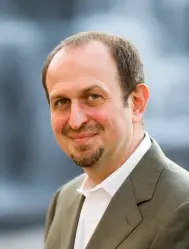





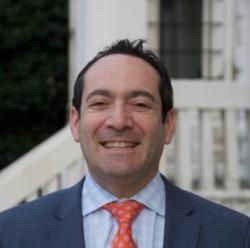
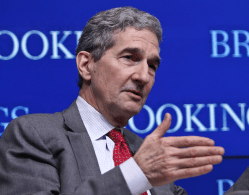

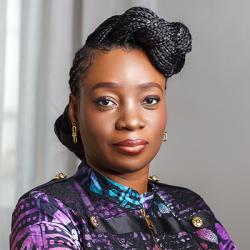
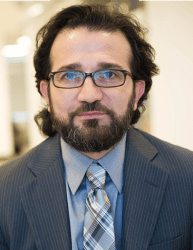
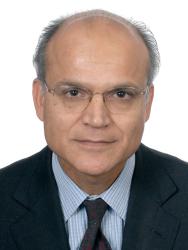







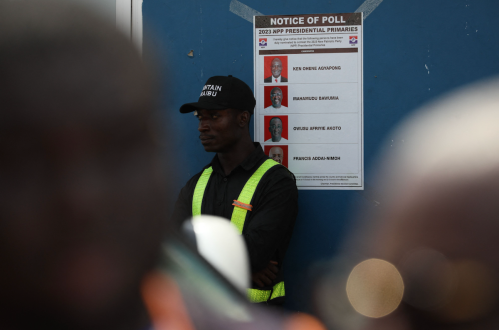
Commentary
What’s at stake at UNGA 2025?
September 19, 2025